IELTS 2023:Dates, Registration, Fees, Eligibility, Syllabus, Pattern, Preparation, Result & Score
- IELTS
-
Jan 27
- Share post
IELTS Highlights
The International English Language Testing System (IELTS) is a widely recognized test of English language proficiency for non-native speakers. It is used for educational and professional purposes, as well as for immigration and visa applications in certain countries.
IELTS has two versions: the Academic version, which is intended for those who want to study at the tertiary level or for professional registration, and the General Training version, which is intended for those who want to migrate to an English-speaking country or for those who want to train in a profession that does not require academic qualifications.
The test consists of four components: Listening, Reading, Writing, and Speaking. The Listening, Reading, and Writing sections are completed in one sitting and take a total of 2 hours and 45 minutes. The Speaking section can be completed either before or after the other sections and takes around 15 minutes.
The Listening section consists of 40 questions and four recordings, which include a conversation between two people, a monologue, and a conversation between several people. The Reading section includes three passages with 40 questions. The Writing section includes two tasks, one in which test-takers must write a minimum of 150 words in 20 minutes, and another in which test-takers must write a minimum of 250 words in 40 minutes. The Speaking section is conducted face-to-face with an examiner and consists of three parts: an introduction, a discussion of a topic, and a summary.
IELTS scores are reported on a band scale from 1 to 9, with 9 being the highest level of proficiency. Test-takers are given scores for each of the four components, as well as an overall band score.
One of the key highlights of IELTS is its international recognition. IELTS is recognized by over 10,000 organizations in more than 140 countries, including universities, professional bodies, employers, and immigration authorities. Additionally, IELTS is designed to test the skills required for real-life communication, making it a reliable indicator of English language proficiency.
Another highlight of IELTS is its flexibility. Test-takers can choose to take the test on paper or computer, and they can take the test at one of the many test centers located around the world. Additionally, the test is offered up to four times a month, providing test-takers with multiple options for scheduling.
IELTS also provides a variety of resources to help test-takers prepare for the test, including sample questions, practice tests, and study materials. These resources can be accessed on the official IELTS website and through authorized preparation centers.
In conclusion, IELTS is a widely recognized and respected test of English language proficiency that is used for a variety of purposes, including education, professional registration, and immigration. It tests the skills required for real-life communication and is recognized by over 10,000 organizations in more than 140 countries. Additionally, IELTS offers flexibility in terms of test format and scheduling, as well as a variety of resources to help test-takers prepare for the test.
IELTS Exam Fees

The International English Language Testing System (IELTS) is a widely recognized test of English language proficiency for non-native speakers. It is used for educational and professional purposes, as well as for immigration and visa applications in certain countries. One of the key aspects of taking the IELTS test is the cost, specifically the exam fee.
The cost of taking the IELTS test can vary depending on a number of factors, including the location of the test center, the test format (paper-based or computer-delivered), and whether you are taking the Academic or General Training version of the test.
In general, the cost of taking the IELTS test ranges from around $160 to $250 USD. The cost can be higher in certain countries or for certain test formats. For example, the cost of taking the computer-delivered test may be higher than the paper-based test.
It’s important to note that the test fee is non-refundable, meaning that if you decide not to take the test or if you are unable to take the test on the scheduled date, you will not be able to get a refund.
There are a few ways to pay the IELTS exam fee, including:
- Credit/Debit card
- Bank transfer
- Cash deposit
It is important to check with the test center for the available options as it varies from one test center to another.
It’s also worth mentioning that some test takers may be eligible for a reduced fee or a waiver of the test fee, such as in cases of financial hardship or for certain groups of people (e.g. refugees or asylum seekers). Eligibility and the process of applying for a reduced fee or a waiver will vary by test center, and it’s important to check with the test center directly to see if you qualify and how to apply.
In addition to the test fee, test takers may also need to pay additional fees for services such as rescheduling or canceling the test, requesting additional score reports, or applying for a remark or an appeal. These fees can vary depending on the test center and the service being requested.
In conclusion, the cost of taking the IELTS test can vary depending on factors such as location, test format, and test version. The cost of the test typically ranges from around $160 to $250 USD, but can be higher in certain countries or for certain test formats. Test takers should be aware that the test fee is non-refundable and that additional fees may apply for services such as rescheduling or canceling the test, requesting additional score reports, or applying for a remark or an appeal. Test takers should check with the test center directly for information on the cost of the test, payment options and if they are eligible for a reduced fee or waiver.
IELTS Exam Dates
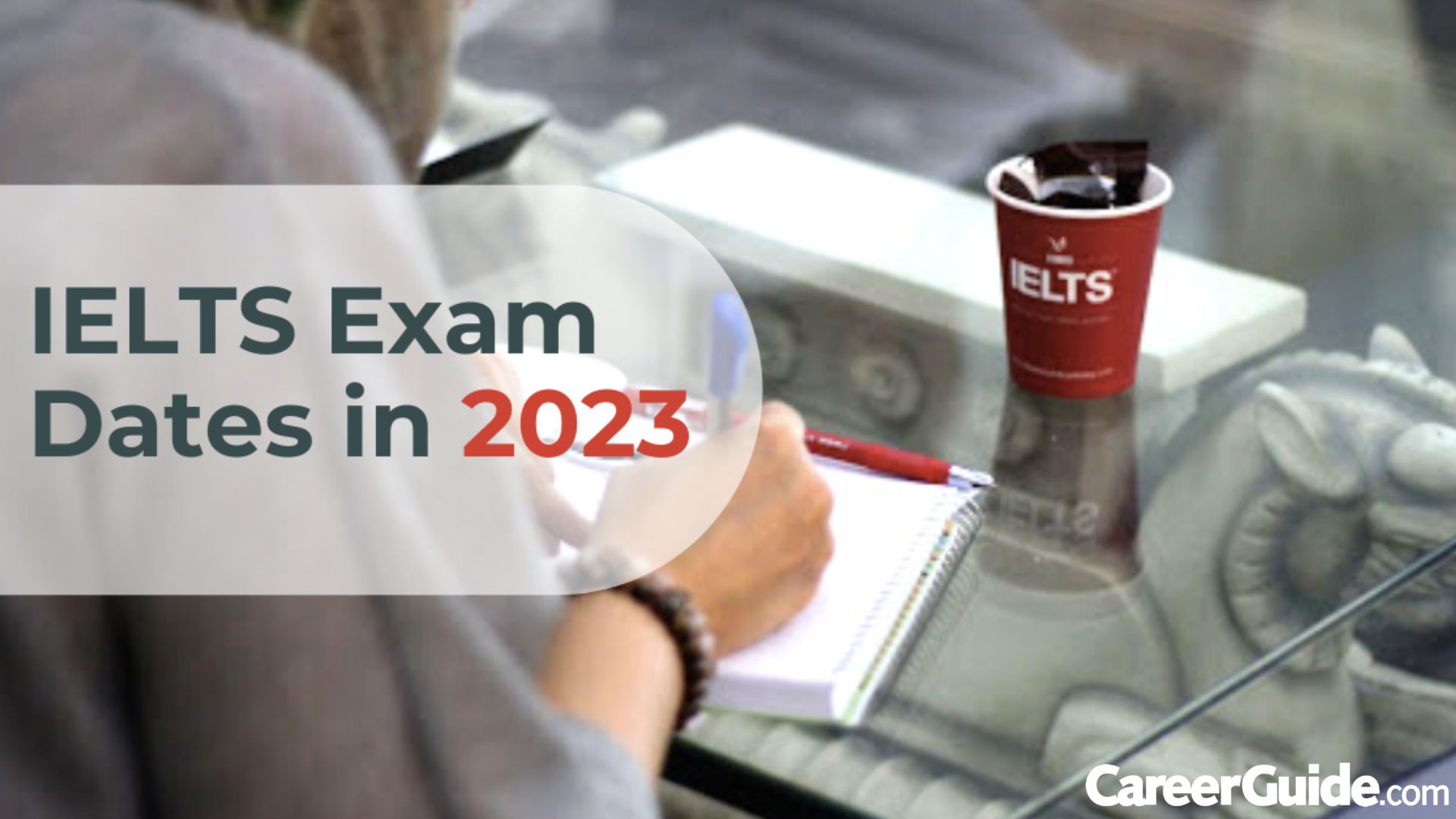
The International English Language Testing System (IELTS) is a widely recognized test of English language proficiency for non-native speakers. It is used for educational and professional purposes, as well as for immigration and visa applications in certain countries. One of the key aspects of taking the IELTS test is choosing the right exam date.
IELTS test is offered up to four times a month, providing test-takers with multiple options for scheduling. The test is typically held on Saturdays and Thursdays, but the exact test dates can vary depending on the location of the test center. The test dates are usually posted on the official IELTS website several months in advance, and test centers also provide information about the test dates on their website or by phone.
It’s important to note that test dates and locations fill up quickly, so you should register for the test as early as possible. It is recommended to register for the test at least four to six weeks before your desired test date. This will ensure that you have enough time to prepare for the test and that you can secure a spot on the test date of your choice.
Test-takers can also choose to take the test on paper or computer, and they can take the test at one of the many test centers located around the world. However, it’s important to note that not all test centers offer both the paper-based and computer-delivered test. Therefore, test-takers should check with their nearest test center to see which test format is offered and when.
It’s also important to note that some test centers have specific test dates for the computer-delivered test, while others may offer it on a more regular basis. Therefore, test-takers should check with their nearest test center to see when the computer-delivered test is offered.
In addition to the regular test dates, some test centers may also offer additional test sessions at different times of the year. For example, some test centers may offer additional test sessions during peak periods, such as the summer or around the holidays. Test-takers should check with their nearest test center to see if additional test sessions are offered and when they are scheduled.
It’s also worth mentioning that some test takers may have specific requirements, such as taking the test on a specific date or at a specific time. In such cases, test takers should check with their nearest test center to see if they can accommodate these requirements.
In conclusion, IELTS test is offered up to four times a month on Saturdays and Thursdays but the exact test dates can vary depending on the location of the test center. The test dates are usually posted on the official IELTS website several months in advance, and test centers also provide information about the test dates on their website or by phone. Test-takers should register for the test as early as possible, at least four to six weeks before their desired test date, to ensure that they can secure a spot on the test date of their choice. Test takers can choose to take the test on paper or computer, and they can take the test at one of the many test centers located around the world, but not all test centers offer both the paper-based and computer-delivered test. Some test centers may also offer additional test sessions at different times of the year. Test-takers should check with their nearest test center for more information on the test dates, format and additional sessions.
IELTS Test Center Instructions
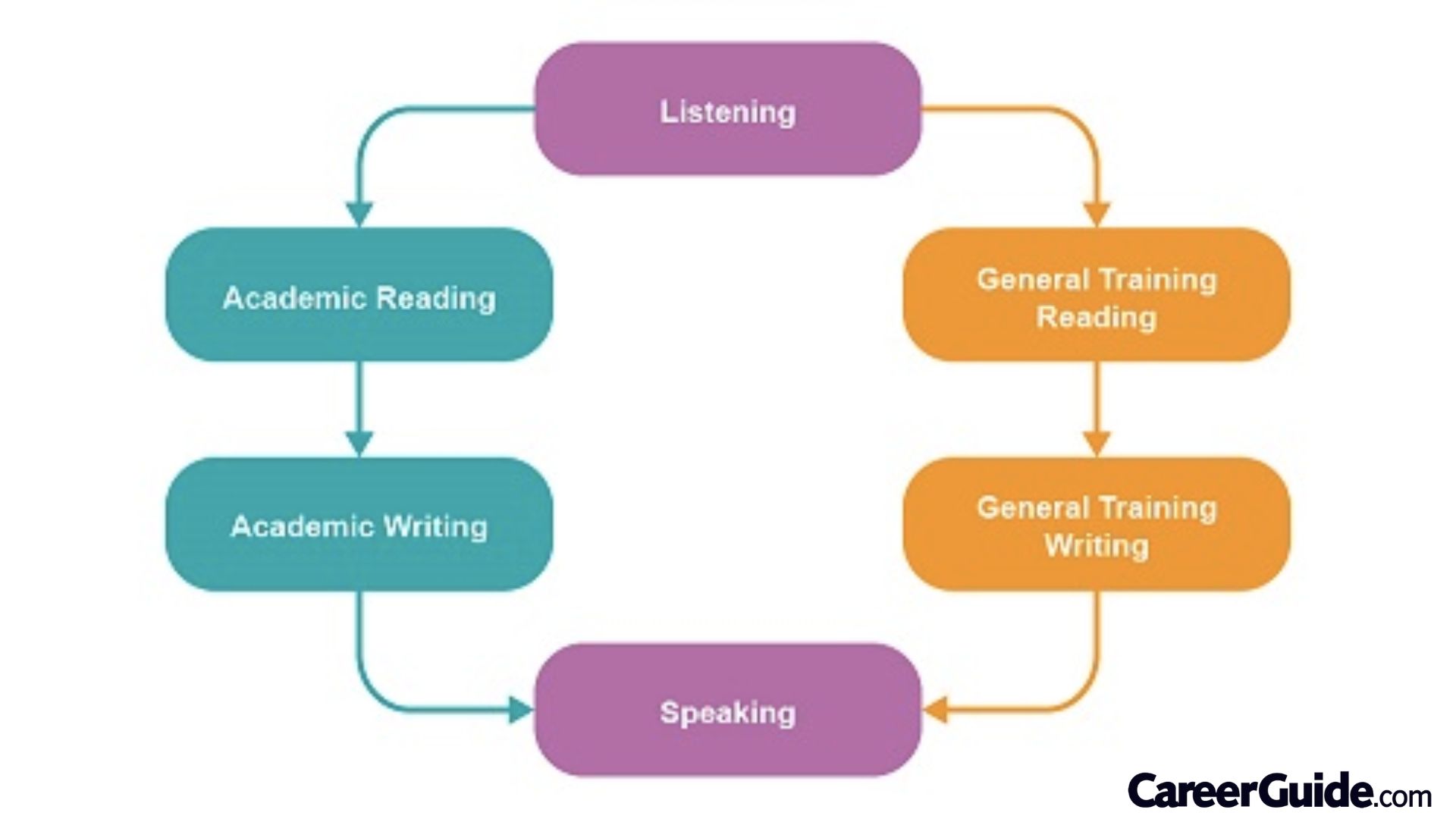
IELTS (International English Language Testing System) is a standardized test that assesses the English language proficiency of non-native speakers. The test is divided into four sections: Listening, Reading, Writing, and Speaking.
Test centers are responsible for administering the IELTS test to candidates and ensuring that the test is conducted according to the rules and regulations set by the IELTS organization. Below are some instructions for test centers to follow when administering the IELTS test:
- Test centers must ensure that the test is conducted on the date and at the time specified by the IELTS organization.
- Test centers must ensure that the test is conducted in a secure and quiet environment, free from any distractions or interruptions.
- Test centers must ensure that the test is conducted by trained and qualified staff who are familiar with the IELTS test format and procedures.
- Test centers must ensure that all test materials, including test papers and answer sheets, are kept secure and are not accessible to unauthorized personnel.
- Test centers must ensure that all test materials are handled and stored in accordance with the guidelines set by the IELTS organization.
- Test centers must ensure that the test results are reported to the IELTS organization in a timely manner and in accordance with the guidelines set by the organization.
- Test centers must ensure that all test takers are treated fairly and with respect, and that no discrimination of any kind is tolerated.
- Test centers must provide test takers with clear and accurate information about the test, including test format, test requirements, and test results.
- Test centers must ensure that test takers are aware of the test rules and regulations and that they are required to adhere to them.
- Test centers must ensure that test takers are aware of the test fee and the payment methods accepted and that they are required to pay the test fee before taking the test.
It is important that test centers follow these instructions in order to ensure that the IELTS test is conducted fairly and accurately, and that test takers are treated with respect and in a manner that is consistent with the guidelines set by the IELTS organization.
IELTS Score Validity
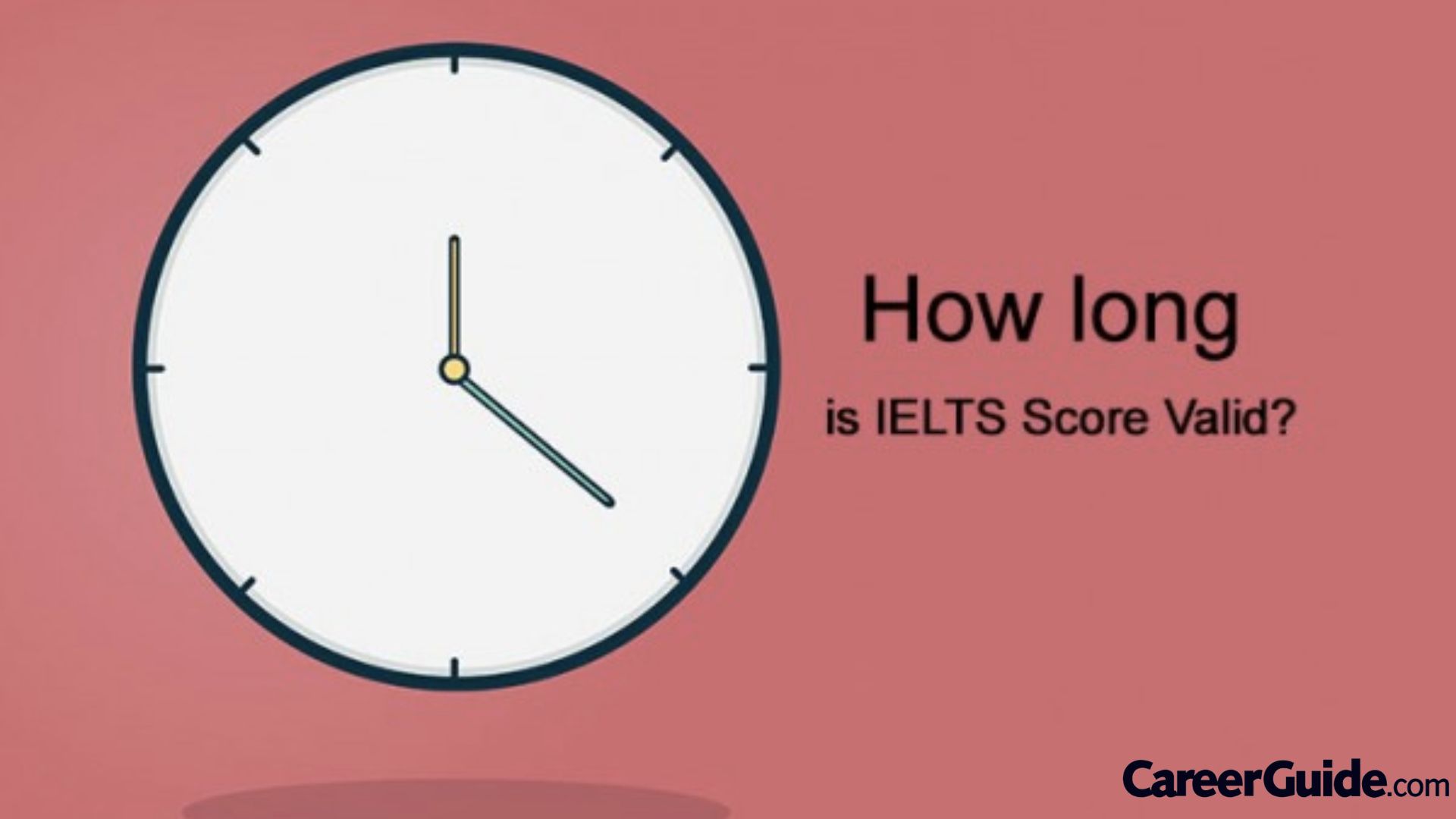
The validity of IELTS (International English Language Testing System) scores refers to the period of time during which the scores are considered to be accurate and reliable measures of a test taker’s English language proficiency.
The IELTS Test Report Form (TRF) is valid for a period of two years from the test date. This means that the scores on the TRF are considered to be accurate and reliable measures of a test taker’s English language proficiency for a period of two years from the date of the test.
After the two-year period, the scores on the TRF are no longer considered to be valid and test takers will need to retake the test in order to obtain updated scores. This is because language proficiency can change over time and the scores on the TRF may no longer accurately reflect a test taker’s current level of English proficiency.
It’s important to note that institutions and organizations may have their own policies regarding the validity of IELTS scores. Some institutions may accept scores that are older than two years, while others may require that test takers retake the test if their scores are more than two years old. Therefore, it is important for test takers to check the specific requirements of the institution or organization to which they are applying before taking the test.
In addition, test takers should also be aware that IELTS scores are only valid for the specific test type taken (Academic or General Training). Test takers should also check the specific requirements of the institution or organization to which they are applying as they may have different requirements for the specific test type.
It is also important to note that IELTS test centers are not allowed to issue additional copies of the TRF after the two-year period, and test takers will need to retake the test if they need updated scores.
In summary, the IELTS scores are valid for two years from the date of the test. This means that the scores on the TRF are considered to be accurate and reliable measures of a test taker’s English language proficiency for a period of two years from the date of the test. However, institutions and organizations may have their own policies regarding the validity of IELTS scores. Test takers should check the specific requirements of the institution or organization to which they are applying before taking the test, and be aware that IELTS scores are only valid for the specific test type taken (Academic or General Training). Test takers will need to retake the test if they need updated scores after the two-year period.
IELTS Band Score
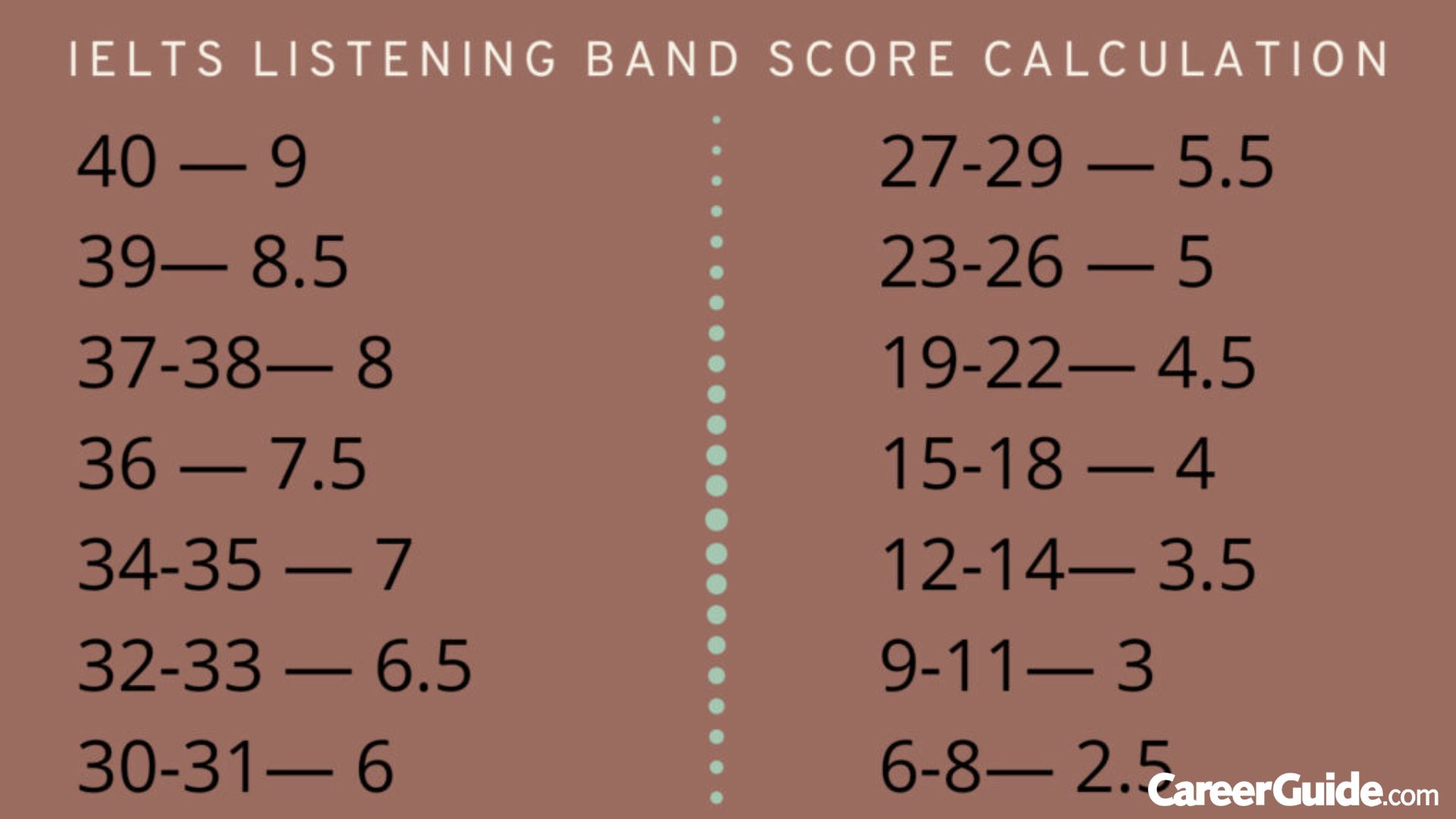
The International English Language Testing System (IELTS) is a widely recognized test that measures a person’s proficiency in the English language. The test is divided into four sections: reading, writing, listening, and speaking. Each section is scored on a scale of 0-9, with 9 being the highest level of proficiency. The overall IELTS band score is an average of the scores from all four sections, rounded to the nearest half or whole band.
The IELTS band scores are used to determine a person’s proficiency in English for academic or professional purposes. The scores are recognized by universities, immigration departments, and employers around the world.
The IELTS writing section consists of two tasks. Task 1 requires the test taker to describe, summarize or explain data or information in their own words. Task 2 requires the test taker to write an essay on a given topic, expressing their own opinion or explaining a point of view.
To achieve a high score on the IELTS writing section, it is important to demonstrate a strong command of the English language. This includes using a wide range of vocabulary and grammar structures, as well as being able to express ideas clearly and logically.
It is also important to follow the specific instructions for each task. For task 1, it is important to accurately describe or summarize the information provided, and for task 2, it is important to present a clear and well-supported argument.
To prepare for the IELTS writing section, it is helpful to practice writing essays on a variety of topics, as well as to read a wide range of texts in English. Additionally, taking a test preparation course or working with a tutor can provide helpful feedback and guidance on areas where improvement is needed.
In conclusion, the IELTS band score is a widely recognized measure of a person’s proficiency in the English language. The test is divided into four sections, with the writing section consisting of two tasks. To achieve a high score, it is important to demonstrate a strong command of the English language, follow the specific instructions for each task and prepare well before the test.
IELTS Score for UK

The United Kingdom (UK) is a popular destination for international students, and many universities and colleges in the UK require a minimum IELTS score for admission to their programs. The IELTS test is widely recognized by universities and colleges in the UK as a measure of English language proficiency, and it is also accepted by the UK government for immigration purposes.
For admission to undergraduate programs at universities and colleges in the UK, a minimum overall band score of 6 or 6.5 is generally required. However, some institutions may have higher score requirements depending on the level of English proficiency required for the program. For example, some universities may require a minimum overall band score of 7 or 7.5 for certain programs or for certain levels of study.
For graduate programs, the minimum overall band score required is generally higher, with most universities and colleges requiring a minimum overall band score of 7 or 7.5. Some institutions may also have higher score requirements for certain programs or levels of study.
For immigration purposes, the UK government requires a minimum overall band score of 6.5 for Tier 1 (General) and Tier 2 (General) visa applications. For Tier 4 (Student) visa applications, the required score can vary depending on the level of the course and the type of institution you are applying to.
In addition to the overall band score, some universities and colleges may also have specific score requirements for each section of the IELTS test. For example, some institutions may require a minimum score of 6 or 6.5 in each section, while others may have different score requirements for the reading, writing, listening, and speaking sections.
It’s important to note that meeting the minimum score requirements does not guarantee acceptance or approval, and other factors such as academic qualifications, work experience, and personal characteristics may also be taken into account by universities, colleges, and the UK government.
To prepare for the IELTS test and to meet the score requirements for admission to universities and colleges or for immigration purposes in the UK, it is helpful to practice taking mock IELTS tests, as well as to read a wide range of texts in English. Additionally, taking a test preparation course or working with a tutor can provide helpful feedback and guidance on areas where improvement is needed.
In conclusion, the United Kingdom (UK) is a popular destination for international students, and many universities and colleges in the UK require a minimum IELTS score for admission to their programs. The IELTS test is widely recognized by universities and colleges in the UK as a measure of English language proficiency, and it is also accepted by the UK government for immigration purposes. The required score can vary depending on the level of the course and the type of institution you are applying to, but generally, a minimum overall band score of 6 or 6.5 is required for undergraduate programs, and a minimum overall band score of 7 or 7.5 for graduate programs. For immigration purposes, the UK government requires a minimum overall band score of 6.5 for Tier 1 (General) and Tier 2 (General) visa applications. However, it’s important to note that meeting the minimum score requirements does not guarantee acceptance or approval and other factors may also be taken into account.
IELTS Score for USA

The International English Language Testing System (IELTS) is a widely used English proficiency test that assesses an individual’s ability to communicate in English. The test is scored on a scale of 1 to 9, with 9 being the highest level of proficiency.
The minimum IELTS score required for universities in the United States varies depending on the institution and the level of study. Some universities may require a minimum score of 6.0 or 6.5 for undergraduate or graduate programs, while others may require a higher score of 7.0 or 8.0 for certain programs or disciplines. Additionally, some universities may have different requirements for different departments, such as business, engineering, or law. Therefore, it is important to check the specific requirements of the university and program you are interested in.
For work or immigration purposes, the IELTS test is not as widely used in the United States as other English proficiency tests such as the Test of English as a Foreign Language (TOEFL) or the Michigan English Language Assessment Battery (MELAB). However, some organizations and government agencies may still accept IELTS scores as evidence of English proficiency.
It’s important to note that the IELTS test is divided into four components: reading, writing, listening, and speaking. Each component is scored separately, and the overall score is an average of the four scores. Therefore, it is possible to have a score of 6.0 in one component and a score of 7.0 in another.
To achieve a good score in the IELTS test, it is important to be familiar with the format of the test and to practice beforehand. There are a number of resources available, such as practice tests and study materials, to help individuals prepare for the test.
It’s also important to be aware that the IELTS test is designed to assess an individual’s ability to communicate in English in real-life situations. Therefore, it is important to be able to demonstrate a wide range of language skills, including the ability to express oneself clearly and accurately, and to understand spoken and written English.
In general, the IELTS test is a challenging but fair assessment of an individual’s ability to communicate in English. Achieving a score of 6.0 or higher is a positive indication of an individual’s proficiency in English and can open up many opportunities for study and work in the United States and other English-speaking countries.
It’s also worth noting that in USA, the TOEFL is more widely accepted in academic and professional settings. It is important to check with the institution or organization you are applying to in order to ensure that they accept IELTS scores.
IELTS Writing Task 2 Score
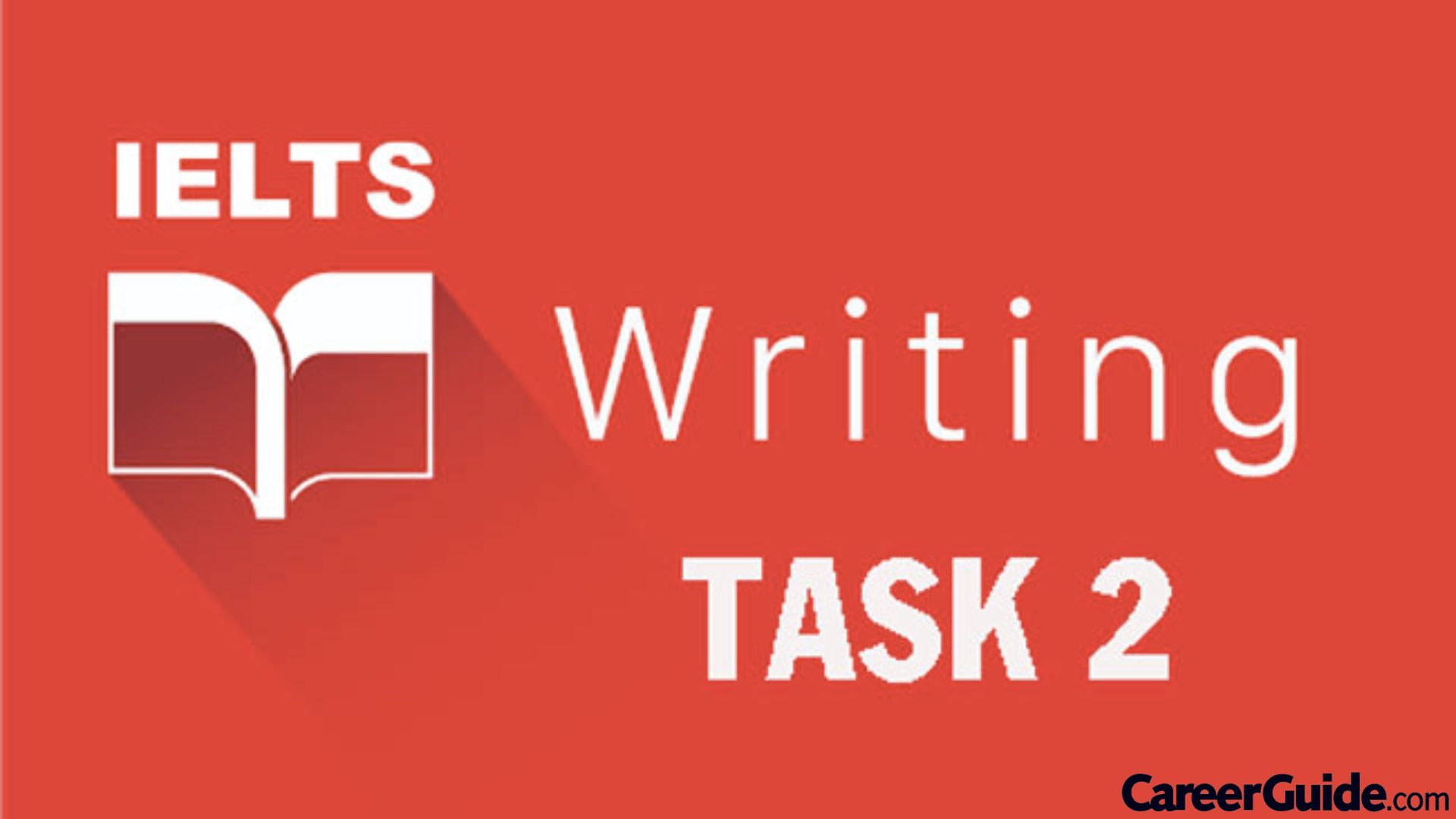
IELTS Writing Task 2 is scored based on four criteria: task achievement, coherence and cohesion, lexical resource, and grammatical range and accuracy. Each of these criteria is given a score between 0 and 9, and the scores are then averaged to determine the overall score for the task.
Task achievement refers to how well the candidate has fulfilled the requirements of the task, and whether the essay or letter is relevant and well-organized. The score for task achievement takes into account the overall organization and structure of the essay or letter, as well as the relevance and quality of the arguments and examples presented.
Coherence and cohesion refers to the logical flow and organization of the essay or letter, and whether it is easy to follow. The score for coherence and cohesion takes into account how well the essay or letter is structured, and how well the ideas are linked together.
Lexical resource refers to the range and accuracy of vocabulary used in the essay or letter. The score for lexical resource takes into account the candidate’s ability to use a wide range of vocabulary, as well as the accuracy of the vocabulary used.
Grammatical range and accuracy refers to the range and accuracy of grammar used in the essay or letter. The score for grammatical range and accuracy takes into account the candidate’s ability to use a wide range of grammatical structures, as well as the accuracy of the grammar used.
It’s important to note that the scores are not based on the candidate’s personal opinions, but on the quality of the writing and the ability to respond to the task appropriately.
A score of 9 is considered to be expert level, 7-8 is considered to be good, 5-6 is considered to be competent, and scores below 5 are considered to be weaker.
In order to achieve a high score on the IELTS Writing Task 2, it is important to
IELTS General Reading Topics

The IELTS General Training Reading Test is designed to assess a candidate’s ability to understand and analyze a variety of texts that are typically encountered in daily life and work. The texts are taken from sources such as newspapers, magazines, brochures, and notices and cover a range of general topics. Some common general reading topics that might be included in the test are:
- Social Issues: This category includes texts related to current social issues, such as poverty, crime, and immigration. These texts might cover topics such as government policies, community initiatives, and personal perspectives on social issues.
- Travel and Tourism: This category includes texts related to travel and tourism, such as brochures, travel guides, and hotel advertisements. These texts might cover topics such as popular tourist destinations, travel tips, and accommodation options.
- Work and Employment: This category includes texts related to work and employment, such as job advertisements, employee handbooks, and company policies. These texts might cover topics such as job requirements, company culture, and benefits packages.
- Health and Fitness: This category includes texts related to health and fitness, such as brochures, articles, and advertisements. These texts might cover topics such as exercise, nutrition, and health-related products.
- Home and Family: This category includes texts related to home and family, such as household guides, home improvement articles, and parenting advice. These texts might cover topics such as home maintenance, decorating, and child-rearing.
- Leisure and Hobbies: This category includes texts related to leisure and hobbies, such as articles, brochures, and advertisements. These texts might cover topics such as hobbies, entertainment, and leisure activities.
- Consumer Information: This category includes texts related to
Read Also:
MBA Exams
Top Searches
Jee Mains
Jee Advance
STUDENTS
- For 9th class
- Skill Based Career Test |
- Services |
- Basic Plan |
- Advance Plan |
- Video Counselling Plan |
- Mentorship Plan
- For 10th class
- Stream Selector Test |
- Ideal Career Test |
- Services |
- Basic Plan |
- Advance Plan |
- Video Counselling Plan |
- Mentorship Plan
- For 11th class
- Ideal Career Test |
- Engineering Branch Selector |
- Humanities Career Selector |
- Commerce Career Selector |
- Services |
- Basic Plan |
- Advance Plan |
- Video Counselling Plan|
- Mentorship Plan
- For 12th class
- Ideal Career Test |
- Engineering Branch Selector |
- Humanities Career Selector |
- Commerce Career Selector |
- Services |
- Basic Plan |
- Advance Plan |
- Video Counselling Plan |
- Mentorship Plan
- For B.Com
- Commerce Career Selector |
- Ideal Career Test |
- Services |
- Basic Plan |
- Advance Plan |
- Video Counselling Plan |
- Mentorship Plan
- For B.Sc
- Ideal Career Test |
- Professional Skill Index Test |
- Services |
- Basic Plan |
- Advance Plan |
- Video Counselling Plan |
- Mentorship Plan
- For B.Tech
- Ideal Career Test |
- Professional Skill Index Test |
- Services |
- Basic Plan |
- Advance Plan |
- Video Counselling Plan |
- Mentorship Plan
- For B.A
- Ideal Career Test |
- Humanities Career Selector |
- Professional Skill Index Test |
- Services |
- Basic Plan |
- Advance Plan |
- Video Counselling Plan |
- Mentorship Plan
- For MBA
- Ideal Career Test |
- Professional Skill Index Test |
- Services |
- Basic Plan |
- Advance Plan |
- Video Counselling Plan |
- Mentorship Plan
- For Masters
- Professional Skill Index Test |
- Services |
- Basic Plan |
- Advance Plan |
- Video Counselling Plan |
- Mentorship Plan
STUDY ABROAD






Copyright © CareerGuide.com
Build Version:- 1.0.0.0
- X
- Telegram
- Tumblr
- VKontakte
- Copy link
- Share via...